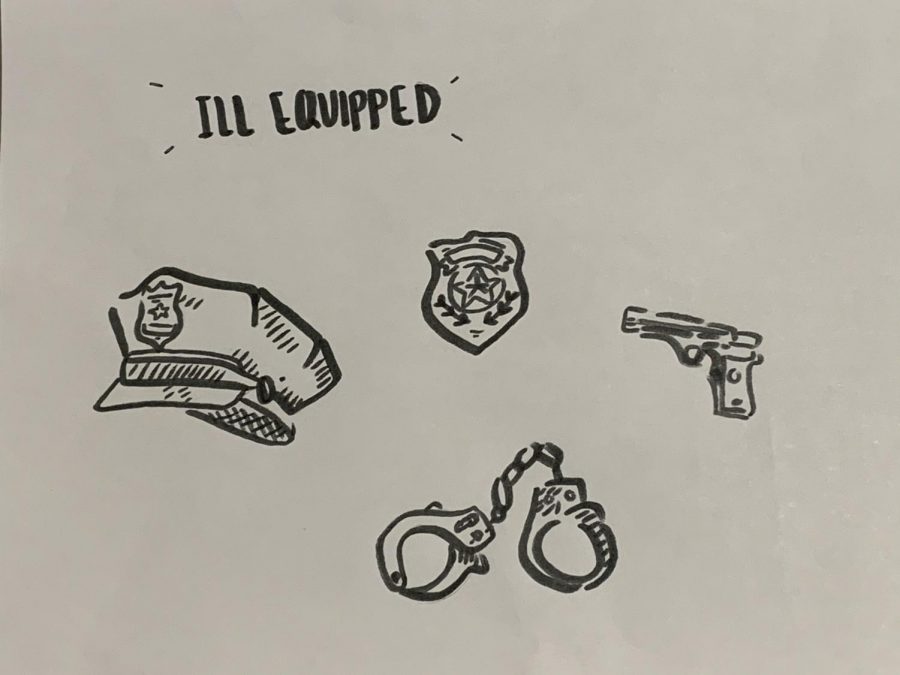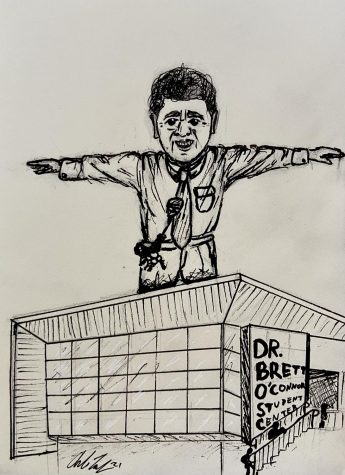Police should not respond to mental health crises
On December 30, 2020, 19-year old Christian Hall, a Chinese-American man, was standing on the Route 33 southbound overpass to Interstate 80 when he was shot by Pennsylvania State Police as he was experiencing a mental health crisis. There were indications that he was contemplating suicide. The police had been called to deescalate the situation, but instead reacted with violence. According to police, Hall was in possession of a handgun and had pointed it at the officers, which warranted their response. However, video evidence later showed that Hall had his hands up when he was shot.
Hall is just another of many people with a mental illness who have been killed or harmed by the police. These occurrences are not new. Consider the cases of Walter Wallace Jr., Stacy Kenny, Linden Cameron, Miles Hall, and many others. According to the Washington Post’s database of fatal police shootings in the United States since 2015, 23% of the 1,000 people who have been killed by the police in the past year alone had some form of mental illness. A mental health crisis, or psychiatric emergency, is a behavior, thought or mood which can lead to harm to both the individual and others in their environment. A study by the Treatment Advocacy Center shows that people with an untreated mental illness are 16 times more likely to be killed during a police encounter in comparison to people who do not have a mental illness. This only brings to mind the question of why police officers are the first and — in many cases — the only responders to mental health crises when they are not able to appropriately respond to the situation.
Police officers do not have sufficient training to know how to interact with a person who is experiencing a mental health crisis, let alone resolve the situation. In California, SB-29, which has been in effect since October 3, 2015, obligates the Commission on Peace Officer Standards and Training to require field training officers, experienced members of the police department who train new officers, to have a minimum of 8 hours of crisis intervention behavioral health training and, in addition to its existing field training officer course, at least 4 hours of training that teaches new officers how to interact with people living with a mental illness or intellectual disability. While this is an improvement from past requirements, the amount of crisis intervention training police officers receive pale in comparison to that of social workers. Earning a Master’s Degree in Social Work is a two-year program and requires at least 900 hours of supervised field instruction. How can we expect police officers to perform the same work as social workers when they have much less training? When interacting with a person who is experiencing a mental health emergency, police officers are forced to make decisions in the spur of the moment. Mental illnesses express themselves in a myriad of symptoms, varying in nature and in severity, and are exacerbated by the overuse of drugs and alcohol. If police officers are unable to accurately interpret the actions of someone having a mental health crisis, they risk escalating the situation, which could result in a life-threatening situation for both parties. As mental health crises are medical emergencies, they should be left to the care of medical professionals who have been trained to do so.
We should not be perpetuating the criminalization of mental health. Having the police respond to mental health crises creates an association between violence and people who have a mental health illness. In addition, police officers might be inclined to respond to people experiencing a mental health crisis with force and intimidation, which will only exacerbate the situation. According to the National Alliance on Mental Illness, people with mental illnesses have a higher chance of being incarcerated than receiving the appropriate medical assistance, due to their increased interactions with the police. Consequently, 37% of adults and 70.4% of youth in the state and federal prison systems are people that have been diagnosed with a mental illness. By eliminating encounters between people with mental health illnesses and police officers, we could allow people with mental health issues to receive the help that they need, instead of sending them to jail, where their mental health will worsen.
There are many alternatives to our current system. One program that has been gaining attention in particular is CAHOOTS, or Crisis Assistance Helping Out On The Streets, which is a mobile crisis response team operating in Eugene, Oregon. In this program, calls that are received through the 911 system and through the police non-emergency number will be evaluated by a dispatcher, as usual. Non-violent situations involving behavioral health will then be routed to CAHOOT workers, and teams of two – a medical professional and a crisis worker – will respond to the situation. CAHOOT workers are trained to use harm reduction and trauma-informed de-escalation techniques and can respond to a variety of situations that involve mental health including housing crises, welfare checks, grief and loss, substance abuse, and suicide threats. They can also provide immediate stabilization and transportation in the event of a medical emergency or a psychological crisis. Currently, CAHOOT answers about 20% of the overall call volume of the Eugene Police Department. As CAHOOT workers are not law enforcement officers, they do not carry weapons, but workers can call for police backup if needed. Out of 23,000 calls received by CAHOOT over the past couple of years, police backup was requested only 150 times. Compared to the annual budget of the Eugene Police Department, which is $70 million, CAHOOT has a $2.1 million annual budget, and saves the city of Eugene approximately $15 million in annual spending on public safety.
The past year has highlighted many of the problems with our current law enforcement system. It is imperative that we listen to and amplify the voices of minority populations that have been negatively affected, and implement the changes that they have been advocating for so long. There is no better time than now.
Hello there! Our goal is to provide relavent, engaging journalism for readers of all ages. Your donation will support the student journalists of the Wolfpacket at Claremont High School, and will allow us to purchase equipment, print our monthly issues, and enter in journalism competitions. We appreciate your consideration!












